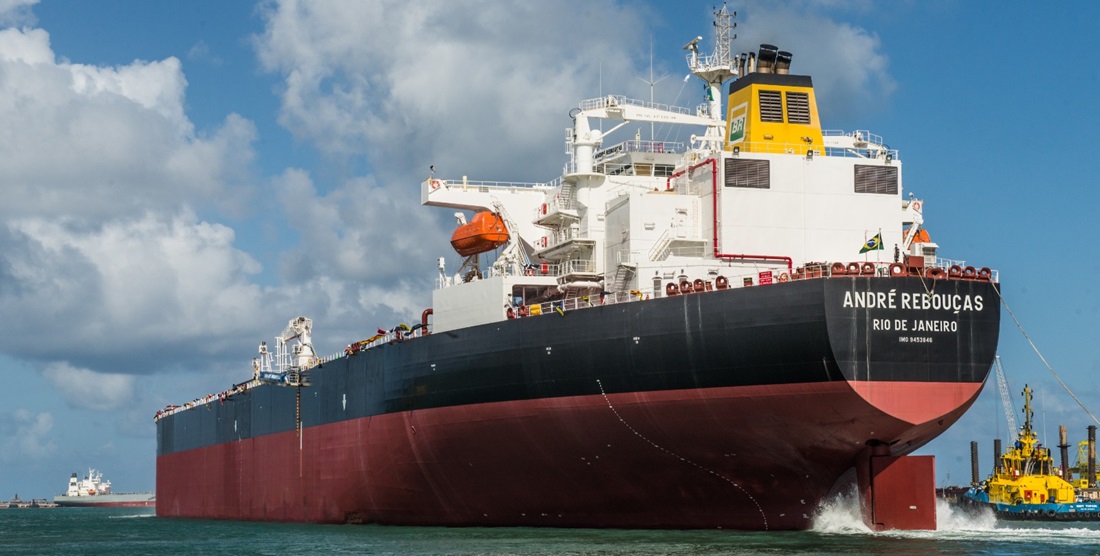
Government pushes for local content in tankers
Sep, 17, 2024 Posted by Sylvia SchandertWeek 202438
The Brazilian government aims to establish local content requirements for tankers used in coastal fuel transport as part of a broader industrial policy for the maritime sector. The provisional executive order published on August 27 authorizes the use of the so-called “accelerated depreciation” tax benefits for new tankers built in Brazil and allows the National Council for Energy Policy (CNPE) to set minimum local content percentages for these vessels, which are intended for transporting oil and oil products. Experts consulted by Valor have criticized the measure, advocating for strategies that not only guarantee demand for domestic shipyards but also enhance their competitiveness.
The government estimates that the measures outlined in decree 1255/2024 could generate R$2.4 billion in investments, leading to the construction of 15 medium-sized tankers in Brazilian shipyards. This is part of a renewed effort to revive the country’s naval industry, which has previously struggled but is seen by the Lula administration as a potential job creator.
The discovery of the pre-salt oil fields in 2006 revitalized the naval and offshore sectors, leading to the construction and modernization of large shipyards in Bahia, Pernambuco, Espírito Santo, and Rio Grande do Sul to meet Petrobras’s demand for drilling rigs and oil platforms. However, the sector was plagued by corruption scandals, and the requirement for high local content percentages delayed projects, increased costs, and made it difficult to find suppliers who met the stringent requirements. Claudio Frischtak, a partner at the consulting firm Inter.B, argues that setting local content percentages is a policy that does not benefit the industry, which needs to become more competitive rather than rely on market protection.
Mr. Frischtak stresses the need to wait and see how the new local content policy will unfold. He said that if the government plans to replicate the high local content requirements of recent years, the risk of another failure is significant. “The problem is introducing unreasonable levels of rigidity, which also leads to inefficiencies in costs, quality, and delivery times,” he said.
The decree stipulates that the determination of minimum local content percentages must consider the inherent dynamism of the oil and gas sectors and be based on concrete data about the industry’s production capacity, ensuring that costs proportionally reflect the government-provided benefits.
According to the Ministry of Mines and Energy, the goal of incentivizing the construction of tankers domestically is to mitigate the impact of freight price fluctuations. In addition to the local content requirements, tankers built in Brazil will be eligible for accelerated depreciation benefits.
Accelerated depreciation is a tax mechanism that allows companies to reduce Corporate Income Tax (IRPJ) and Social Contribution on Net Profit (CSLL) in the early years of an asset’s useful life.
Under standard tax depreciation rules, an investment in a tanker with a 10-year useful life must be deducted from the company’s taxable income over those 10 years. Thus, each year, 10% of the vessel’s cost is deducted from the tax base for IRPJ and CSLL.
With accelerated depreciation, a company can deduct 50% of the cost in the first year and 50% in the second year. This means the company can benefit from the tax deduction within the first two years instead of gradually over 10 years. The mechanism effectively accelerates the deduction value for IRPJ and CSLL without reducing the tax burden, freeing up cash flow for companies at the time of investment without causing the government to forfeit tax revenues.
The decree limits the tax benefit to R$1.6 billion and applies to tankers purchased by December 31, 2026, and operational from January 1, 2027. It also mandates that the tax relief be included in the budget law.
Joelson Sampaio, a finance professor at the Getulio Vargas Foundation (FGV), states that accurate demand forecasting and measures to enhance the productivity of domestic shipyards are strategic aspects that can ensure the industry’s sustainability. According to him, the decree aims to boost national production and includes a requirement for accelerated depreciation benefits, rather than simply subsidizing the sector.
Karine Fragoso, general manager of oil, gas, energy, and the maritime industry at the Federation of Industries of Rio de Janeiro State (FIRJAN), emphasizes that the global maritime industry is supported by state initiatives, delivering products tailored to local needs, and fostering local engineering development and job creation. She believes the decree addresses the need to establish long-term planning tools for the maritime industry, with viable local content percentages and transparent investment plans.
Part of the effort to revive the maritime industry began in July when Transpetro, Petrobras’s logistics subsidiary, announced a tender for the purchase of four tankers. At the time, Transpetro’s CEO Sérgio Bacci said that acquiring tankers helps stabilize freight prices for Petrobras.
The tender offers favorable conditions for domestic shipyards, including cheaper financing rates from the Merchant Marine Fund (FMM) and exemption from import taxes. Transpetro plans to acquire 25 vessels at an estimated cost of $2 billion to $2.5 billion.
Source: Valor Internacional
-
Other Logistics
Jun, 27, 2024
0
Federal Government aims to expand perimeter alongside railway tracks in Brazil
-
Shipping
Mar, 09, 2022
0
Log-In expands its cabotage service capacity in Manaus
-
Environment
Sep, 27, 2023
0
Shipping industry has no easy path towards decarbonisation – UNCTAD
-
Grains
Mar, 04, 2021
0
Agribusiness share of total exports falls due to drop in soybean handling



